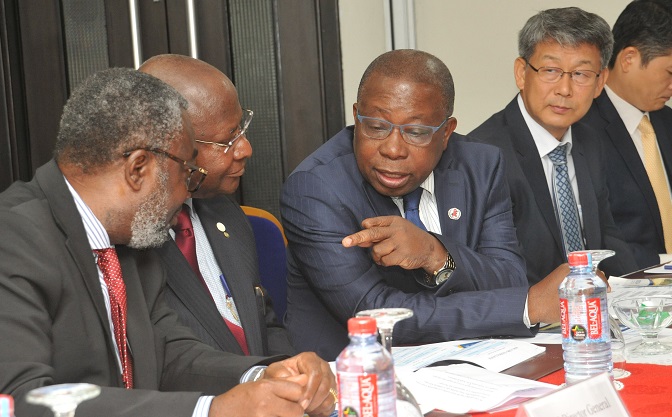A nine million dollar five-year project for improving community-based primary health care for CHPS in 13 districts in the Upper East Region has been launched in Accra.
Christened CHPS+ Project, the initiative (funded by the Korea International Cooperation Agency (KOICA) is expected to strengthen the capacity of the country’s health systems in the Upper East Region to deliver quality care.
It will focus on community health volunteers, maternal health, improve basic equipment and infrastructure requirements at all levels in the region.
The CHPS+ Project is an improvement over the Ghana Essential Health Intervention Programme (GEHIP) that was launched in 2009 with funding from the Doris Duke Charitable Foundation.
The GEHIP was implemented as a plausible trial by the Upper East Regional Health Directorate with support from the Navrongo Health Research Centre.
After five years of implementing the GEHIP, results indicated feasible and effective means to accelerate the expansion of CHPS coverage in four districts of the region and KOICA began the effort to find a way of improving maternal and child health through community-based approach in Ghana.
Revision of CHPS policy
Launching the project in Accra yesterday, the Minister of Health, Mr Kwaku Agyeman-Manu, said the government was desirous of ensuring the successful implementation of the revised CHPS policy.
He stated that the health system in the country was critical for national development and the vision of the government was to ensure that the right to health of Ghanaians was guaranteed through an established health sector.
“To realise this vision, the government and other partners will expand health promotion programmes, scale up disease prevention strategies and improve access to curative and emergency services through vigorous human resource and health infrastructure development and strengthen the National Health Insurance Scheme,” the minister stated.
Need for health systems
Mr Agyeman-Manu further submitted that strong health systems were critical to achieving the Sustainable Development Goals and ensuring good standards of health and equitable health outcomes for all.
Much of the burden of disease and premature deaths in the developing world, he pointed out, could be prevented through the effective delivery of health services.
He noted, however, that despite the huge investments in the health sector over the years, the country still faced the challenge of delivering high-quality health services that could provide prevention, care and treatment when needed and at an affordable cost.
Mr Agyeman-Manu expressed the government’s appreciation to the government and people of Korea for their continuous support to the health sector, particularly in deprived communities in Ghana.
Project overviews
Giving an overview of the project, the Deputy Director of Policy Planning, Monitoring and Evaluation at the Ghana Health Service, Dr Anthony Adofo Ofosu, said an initial feasibility study was done in the Ashanti, Upper West, Upper East and the Volta regions. The Upper East Region was the region selected for the project in March 2015.

